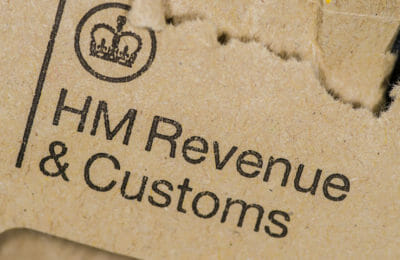In May 2024, when Prime Minister Rishi Sunak called a general election, there was a rush to get legislation passed before Parliament was dissolved. Some bills, such as the Renters (Reform) Bill, were dropped. Others passed in a different form than expected. One of these was the Finance Act (No. 2) 2024.
The Finance Act was intended to pass into law various measures announced in the Spring Budget. Some of these didn’t make it into the final Act. These include the proposed abolition of the Furnished Holiday Lettings (FHL) regime, which was to apply from April 2025. Another casualty was the intended reform of the rules relating to non-domiciled individuals.
Given that the Finance Act didn’t include various measures, it’s helpful to know what did end up in the legislation. In this post, we summarise the key things that did become law.
Income Tax rates
The Finance Act confirmed the Income Tax rates for 2024-25. These remain the same. The basic rate will be 20%. The higher rate will be 40% and the additional rate will be 45%. The starting rate for savings will remain at £5,000.
High Income Child Benefit Charge (HICBC)
The lower threshold for the High Income Child Benefit Charge will go up for the tax year 2024-25. This will increase from £50,000 to £60,000. The higher threshold will go up from £60,000 to £80,000.
CGT on property
The higher rate of Capital Gains Tax on residential property will go down from 28% to 24%. This will apply to all disposals made on or after 6th April 2024.
Multiple Dwellings Relief
The Finance Act abolishes Multiple Dwellings Relief for Stamp Duty Land Tax (SDLT). This will affect land transactions where the effective date is on or after 1st June 2024. Before the change, Multiple Dwellings Relief offered an SDLT discount if you bought several properties in a single transaction.
Changes to First-time Buyers’ Relief
The Finance Act also changes the rules relating to First-time Buyers’ Relief from SDLT. This will allow first-time buyers who enter into nominee or bare trust arrangements to claim the relief. The change is designed to help victims of domestic abuse who want to use these arrangements to prevent a former partner discovering their new address.
Corporation Tax
The main rate of Corporation Tax for the 2025 financial year remains at 25%. The standard small profits rate remains at 19% and the standard marginal relief fraction stays at 3/200ths.
Transfer of Assets Abroad
The Finance Act stops individuals from bypassing Transfer of Assets Abroad legislation. This prevents people from using a closely held company to transfer assets offshore. In other words, you won’t be able to transfer an asset to an overseas person and still benefit from the income generated by that asset.
What about the things missing from the Finance Act?
It’s impossible to say whether the measures that are missing from the Finance Act will become law in the future. What happens next depends on which party or parties form the next government. We’ll be sure to keep an eye out for future legislation that could affect our clients and will publish relevant information on this blog.
Read the full Finance (No. 2) Act 2024 here.
About Karen Jones
Having worked for one of the world’s largest accountancy firms, Karen Jones uses her tax knowledge and skills to help clients obtain substantial reductions to their tax liabilities.
With an expanding portfolio of tax clients, Karen enjoys the variety her work brings her and particularly likes working with new businesses and people. With a growing number of tax clients, she frequently faces a variety of challenges and relishes the experience she gains as she solves them.
Karen likes the THP ethos: “I like the way the team has a professional, but friendly and down-to-earth approach – it creates a productive atmosphere that benefits everyone.”
Karen’s specialist skills:
- Personal Taxation
- Tax Efficient Planning
- Trust Administration












